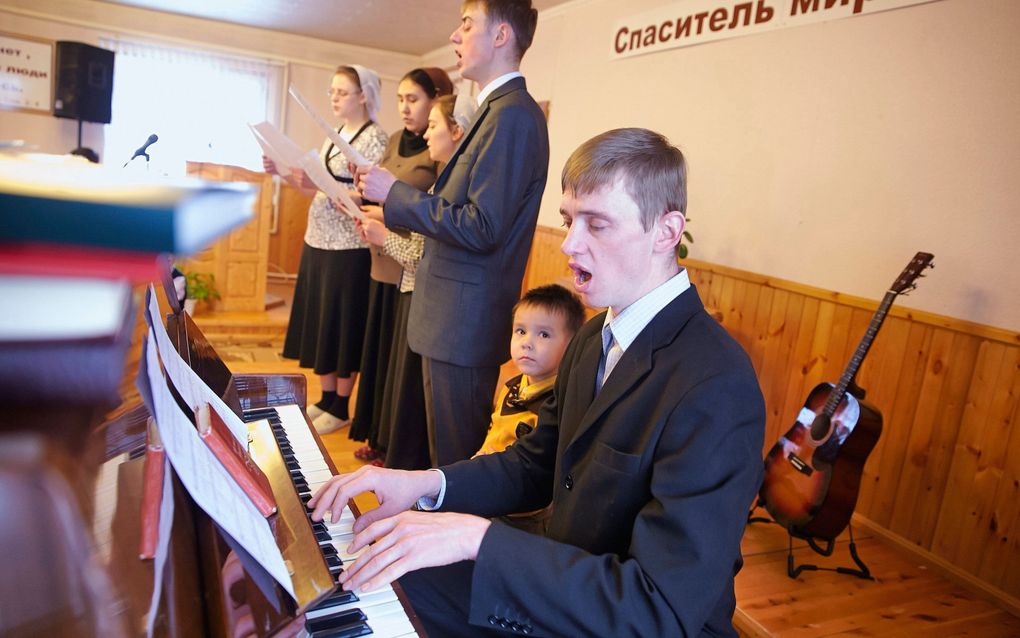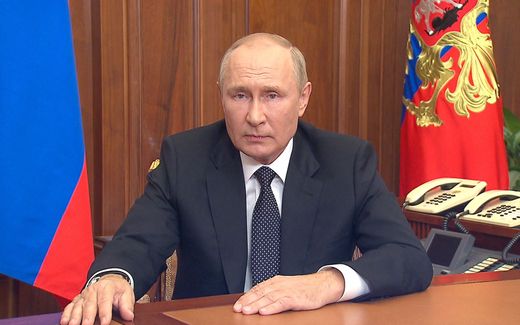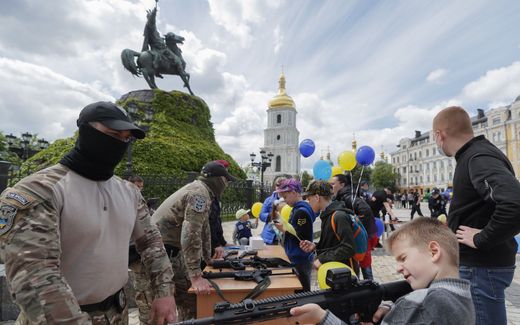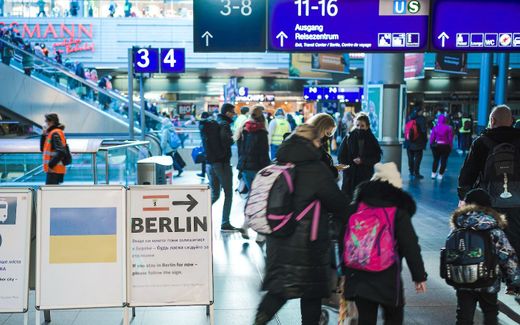What will I say to my pacifist brother in the Russian prison?

Many Protestants in Russia are pacifists. The army mobilisation can make life difficult for them. Photo Jaco Klamer
Christian Life
As a Dutch Calvinist, I am entirely used to the idea of a just war. The best books I read as a young boy were written by Piet Prins. They were either about the Second World War or the Dutch Revolt after the Reformation. In both conflicts, it was an honour to carry the weaponry. And in our Reformed tradition, that had not changed in times of peace.
In my youth, the conscription army service was still there. Two of my older brothers were in the army for a year and a half or so. Yes, there was discussion about the atmosphere in the army barracks (boredom and drunkenness were common), but not about the necessity of the defence forces. When we would be attacked, it would be justified to defend ourselves.
Smuggling Bibles
Nevertheless, we understood that the Protestants in the Soviet Union did not want to join the army. What Christian would fight for an atheist state? So, we were happy to smuggle Bibles and other materials to them. I don’t think anyone has ever tried to import an explanation of the “just war theory” to them. We fully respected their position as persecuted Christians. But to be honest, I don’t think we understood their pacifist beliefs.
Also, after the fall of communism, this was no topic for conversation either. Other things received attention. In Holland, the conscription of army service was abolished, and in Russia and Ukraine, the church had to be built up.
In the meantime, however, positions did not change essentially. This week, the leader of the Dutch Reformed SGP party, Kees van der Staaij, stated in a debate in the Lower House that his 100-years old party had never seen anything in pacifism. This explains why he already advocated larger defence budgets long before Putin put his eye on Crimea and Ukraine.
There was no difference of opinion between the Christian parties in the Netherlands (both small and large). The Christian Democratic CDA and the Protestant Christian Union have always supported NATO. Among German Christians, pacifism gained a large following after World War II, but not in Holland.
Menno Simons and John Bunyan
But while Van der Staaij was making his case for the defence forces in Parliament, at home, his voters were busy for the support to Christians in Russia and Ukraine. Many (unregistered) Baptists in those countries receive important aid from the Netherlands. Spiritually, however, these brothers and sisters are often closer to (the Ana-Baptist) Menno Simons than to (the Reformed Baptist) John Bunyan. In their non-violence, they resemble the Amish more than stalwart Calvinists.
For the last 30 years, hardly anyone has paid attention to this. But now that difference is suddenly coming to the surface again. This Wednesday, Russian President Putin announced the mobilisation. Recently, grounds for exemption in the mobilisation law had been minimised. Above that, Russia has never been a country where “consciential objections” impress many. As a result, a young Christian can be called to defend the “Russian world” in eastern Ukraine. While he considers using arms a sin. But if he refuses, he risks ten years in prison.
Bible belt of Soviet Union
Since the February invasion, many Ukrainian face the same dilemma. Most evangelicals there are pacifists too. So far, this has not led to many problems, but this could change quickly.
Besides, Ukraine and Russia are not equal in this respect. Under communism, (the) Ukraine was known as the ‘‘Biblebelt’’ of the Soviet Union. As such, the country is much more accustomed to religious diversity than Russia. Hopefully, a Christian pacifist can count on more understanding in Kyiv than in Moscow.
As said, many Christians in the Netherlands still feel closely related to their Bible-believing brothers and sisters behind the old Iron Curtain. But meanwhile, they fully support military aid to Ukraine.

Of course, that support is understandable. In the seven months since the invasion, a massive amount of arms aid has gone to Ukraine from the West. We now know how important it is. Even German Christians have become divided among themselves over that arms support.
A good question for myself is this: what will I say to somebody who will be sent to prison for this? Will I read him from my old Piet Prins books about the honour of the national defence? Or will I defend the weapon support to Ukraine? Or can I admire him for his faithfulness to his beliefs and conscience?
Fasting and praying
Russian Baptists are not made to doubt by this. After Putin’s mobilisation speech, the Russian Union of Baptists has called local churches to pray and fast for a day. Primarily to support those who may be called up for military service. One of the Union’s leaders, Viktor Ignatenkov, called the news about the mobilisation this week confusing. But this is precisely why Christians must “unite in prayer to keep, as the church of Christ, peace and hope in our hearts”, he said. “Pray for peace among nations.”
For all Christians, though, this is a fine thing to do. The “just war theory” is something Christians will differ about until the youngest day. But this need not stop us from praying in love for each other.
Related Articles







